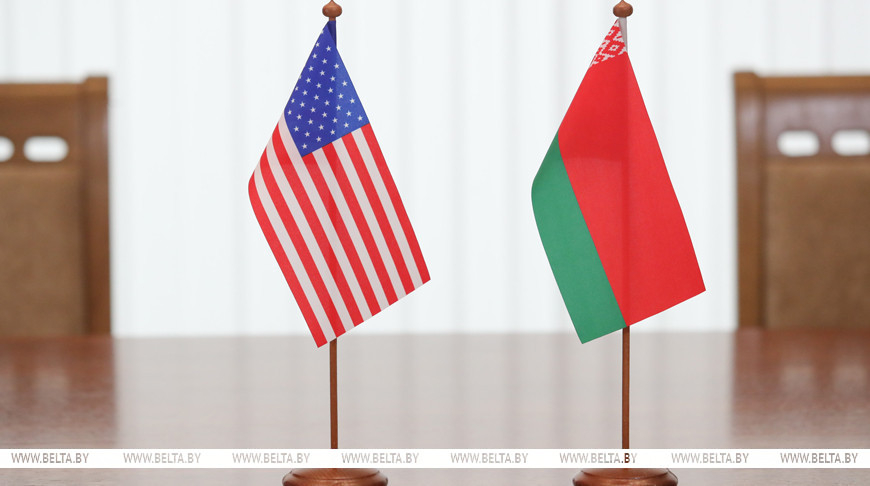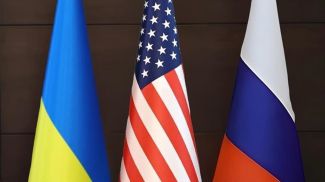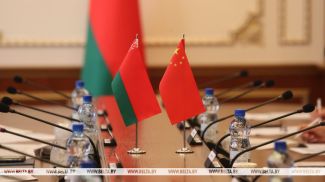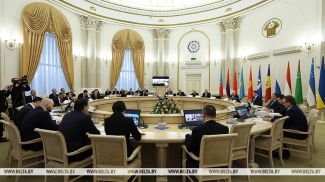
MINSK, 7 August (BelTA) - Resetting relations with Belarus aligns with U.S. interests. However, Washington must recognize that it is dealing with a sovereign state that prioritizes independence and national interests. These conclusions are outlined in a recently published report by the Quincy Institute for Responsible Statecraft, a Washington-based think tank.
The analytical paper, titled "Desecuritizing the Belarusian Balcony: Principles for U.S.-Belarus Relations," was authored by Mark Episkopos, a research fellow at the Quincy Institute’s Eurasia Program. In his work, he proposes a “roadmap for constructive U.S.-Belarus engagement” and offers recommendations to the administration of President Donald Trump.
“The White House’s decision to reengage Belarus, marked by Gen. Keith Kellogg’s June visit to Minsk, reflects a welcome recognition that the policy inherited by President Donald Trump from the previous administration has been counterproductive,” the report states.
Since the Soviet collapse, American strategic discourse has too easily resorted to the belief that Belarus must be forced to choose between Russia and the West, and that Minsk should be isolated as long as it takes for it to make the “correct” choice. “This approach never fully took into account the geopolitical realities confronting Belarus and misread President Aleksandr Lukashenko’s chief foreign policy objective, which was to triangulate between Russia and the West in a bid to preserve Belarusian sovereignty on the best possible terms,” the report reads.
According to the author, the president of Belarus has always maintained a grand strategy of shaping Belarus as a multi-vector state that, which helped it cultivate relationships with other countries based on Belarusian national interests. Besides, Lukashenko has always done his best to keep balance between East and West. However, the West's policy of pressure has led to a breakdown in relations with Minsk and pushed Belarusian authorities to double down on the ties with Russia, China, and much of the non–Western world.
“The West has diminished its own leverage and undermined its regional posture by adopting a punitive and ultimatum-based stance toward Belarus, hurting American interests in the process,” the report reads.
Episkopos believes the West's mistake was ignoring Belarus' geopolitical realities. Attempts to pull Minsk out of Moscow's orbit proved counterproductive and threatened regional stability.
“The [U.S.] administration’s strategic vision toward NATO’s eastern flank is best advanced by an approach that treats Belarus neither as a potential bulwark against Russia nor as Moscow’s appendage, but instead one that embraces multi-vector politics as an attractive option not just for Belarus but for other post–Soviet states,” the report states.
Resetting relations with Belarus is of critical importance for the U.S., the author believes. “Belarus is a key staging ground between NATO and Russia, making it an actor of outsized importance on issues of both nuclear and conventional force posture in the region,” Episkopos writes.
He maintains that Washington should engage with Belarus as a sovereign nation willing to foster constructive ties with the West while preserving its longstanding historical relations with Russia.
The author also cites the Belarusian president's remarks made during his February 2023 meeting with foreign and Belarusian journalists. “I want us to have normal relations [with the West]. On my side there is only one thing: Don’t interfere in our garden. Do not interfere with our lives, and we will be good partners. We are ready for anything that does not contradict our interests and the interests of our allies. If you do not bend us over your knees, we will quickly reach an agreement,” the president stressed.













